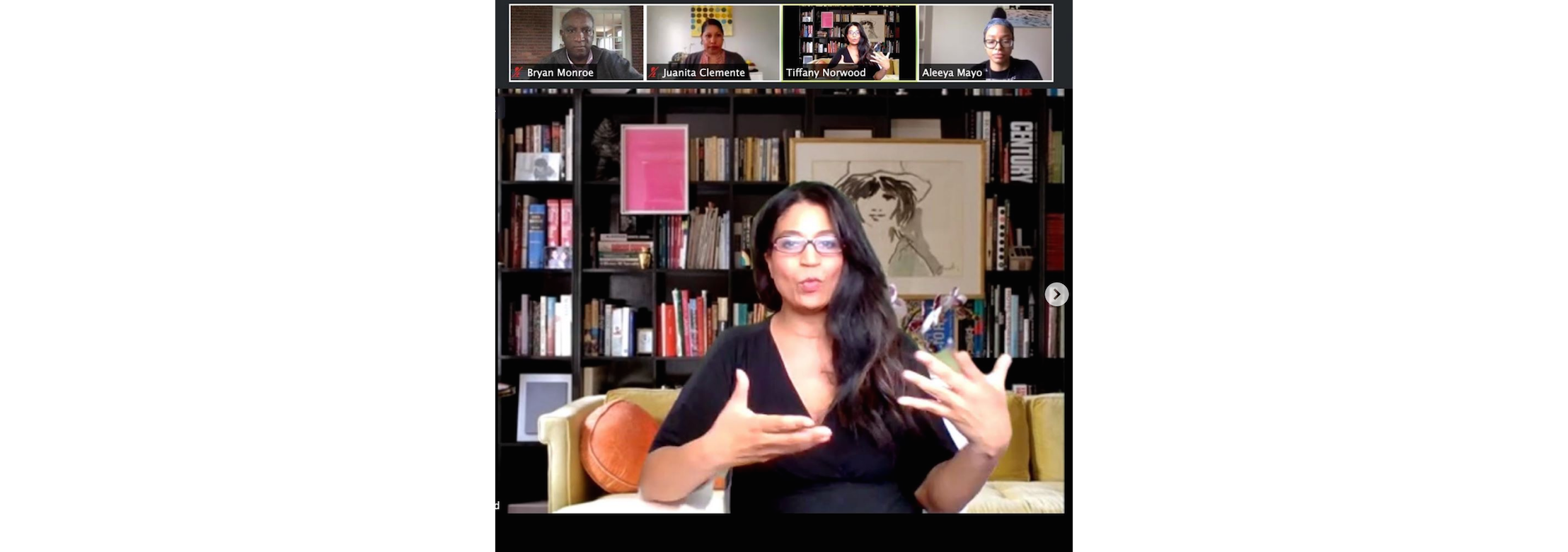When Bryan Monroe, associate professor of practice in the Department of Journalism, designed his The Entrepreneurial Journalist class, he knew that it had to reflect both the challenges and rewards that real entrepreneurs in communication and community-centered businesses face. As a result, he made the final project of the class a modified version of a “shark tank.” Based on the ABC reality show Shark Tank, the class’ take consists of a panel of judges — known as “sharks” — who decide whether they would invest in the hypothetical business idea after a student group’s business pitch. But due to COVID-19 changes, the shark tank took a different turn: at the end of this year’s spring semester, student groups virtually pitched their business ideas for a panel and their classmates.
Students were excited and highly prepared for the virtual shark tank because from the outset of the class, Monroe made sure to iterate that “having a neat idea isn’t enough unless it solves a problem.” Throughout the semester they worked in four groups, each coming up with a business idea and creating a business plan. Thinking through marketing strategies and competitive analyses helped the groups put together the impressive presentations they pitched to the virtual panel.
“One of the things I really wanted to do with the class was give [students] something that I didn’t get when I was in journalism school and that was an introduction into if you’ve got an idea, how to take it from an idea to a business,” Monroe says. “They don’t teach us that in journalism school. And so we get out there and we’re really good writers or really good editors, photographers, or social media [and] web folks, but we don’t know how to turn an idea we may have in the middle of the night into something that can actually generate revenue and sustain ourselves.”
Every semester the “sharks'' on the panel vary, though all panelists have offered valuable insight and advice. This virtual shark tank featured business and communication experts Juanita Clemente, a judicial assistant in Seattle, Washington; Tiffany Norwood, a global serial entrepreneur and the founder and CEO of Tribetan keynote, workshop and consulting services; and Shannon Travis, former national reporter for CNN and CEO of Higher Glyphs Content Group.
Aleeya Mayo ‘20, who majored in journalism and took a class with Monroe prior to The Entrepreneurial Journalist worked in the group that pitched MochaMate, a service that brings coffee directly to users on and around Temple University’s campus by connecting with surrounding coffee shops.
“Our group just worked really hard to make sure that we could present this in a way where somebody could actually want to invest in it number one. And two, that it would be something that college students and other business people in the city would be able to benefit off of,” she says.
Going virtual is not the only way that the class adapted to the onslaught of COVID-19. When the class shifted online, Monroe tasked students with considering the effects of the pandemic on their business plan. Mayo recalls that her MochaMate team adjusted their business model to include users outside of Temple. If anything, she believes the extra challenge only increased the realistic approach of the curriculum, noting that “The pandemic could not ruin the overall je ne sais quoi of the class.” She credits Monroe for keeping the class as stable as possible amid uncertainty and allowing the shark tank tradition to continue.
“Professor Monroe was super hands-on helping us every step of the way to make sure that we knew exactly what we were doing and how to do this,” she says. “This was like essentially starting a business.”

